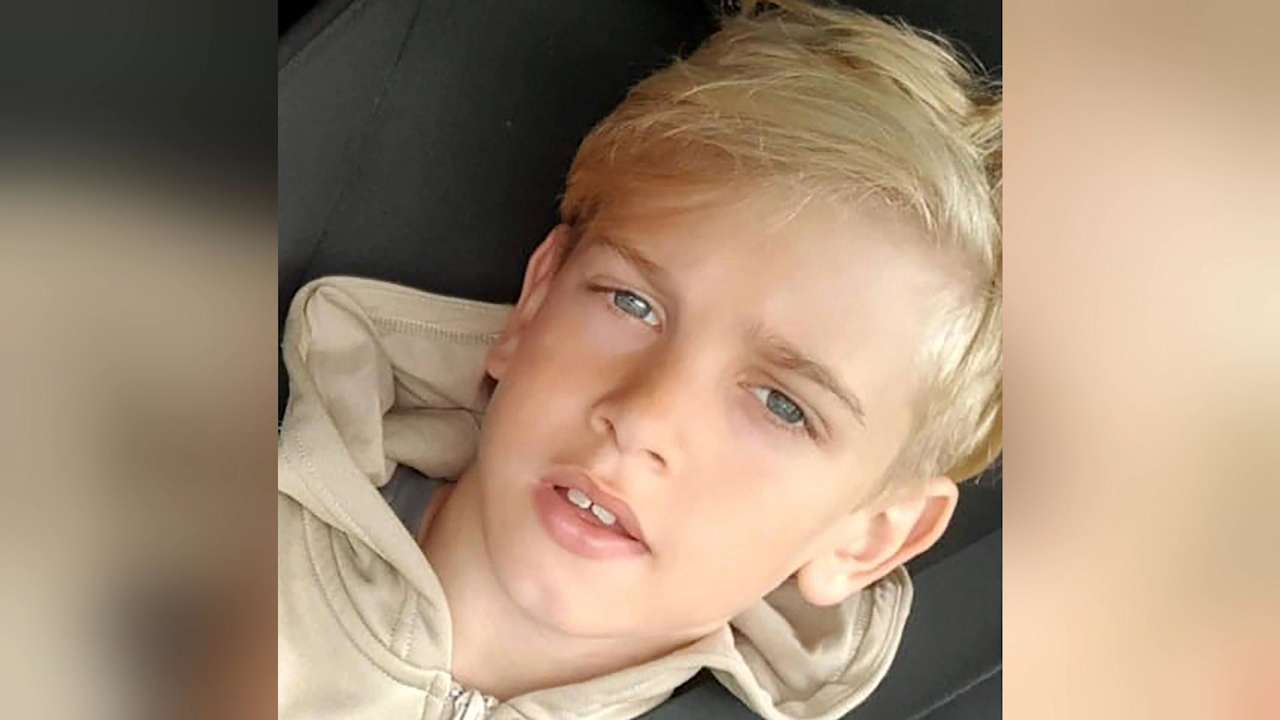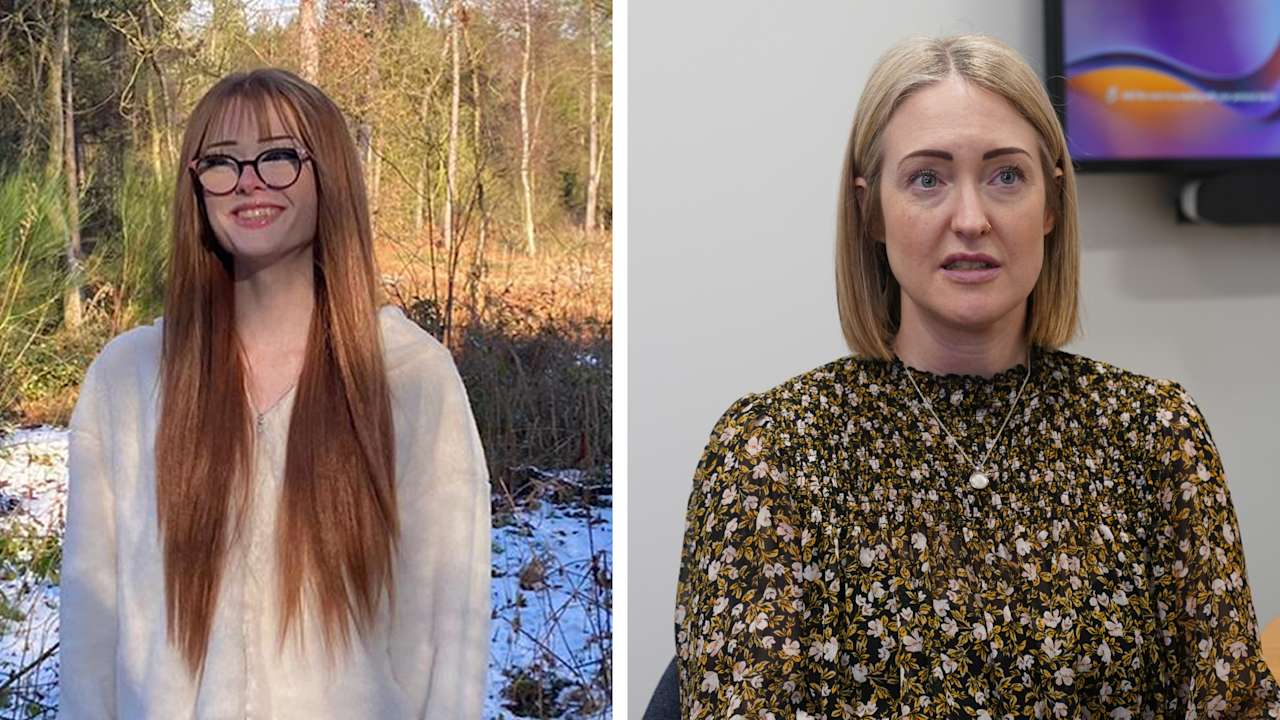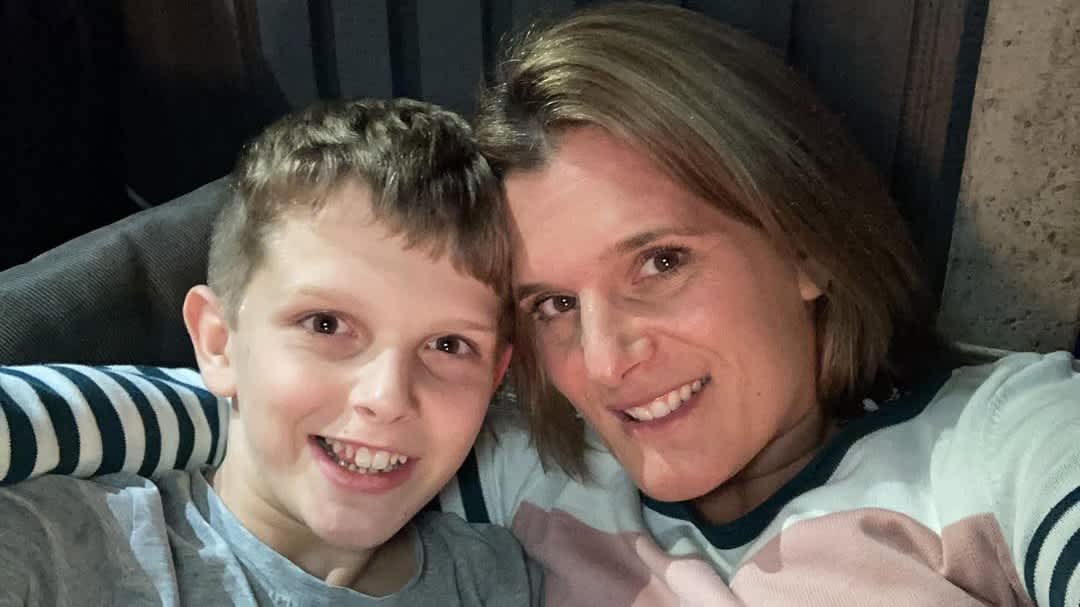The mother of a 13-year-old boy who died after what was believed to have been an online challenge has accused the government of being “in bed with tech companies”, adding that most people do not understand the size of the “monster we’re dealing with” when it comes to online safety for children.
Lisa Kenevan’s son, Isaac, died in 2022. She is part of a group of British families who are suing TikTok for hosting what they believe to be dangerous online content, which led to the deaths of their children.
A fifth British family has recently joined the group action, which has been filed on their behalf by the US-based Social Media Victims Law Centre.
The lawsuit claims the children died while trying a challenge that circulated widely on the social media platform at the time, despite its own rules banning content that shows or promotes dangerous behaviour.
TikTok says it works proactively to identify, review and remove content that violates its policies.

The Online Safety Act came into law on October 26, 2023, and Lisa has told ITV News that it’s important the law doesn’t now stagnate.
“No law is water-tight, and tech is moving at such a fast pace,” she said.
“The act has helped reduce exposure and illegal content, along with bringing in age verification. But the reality is, the monster we’re dealing with is still far bigger than most people realise.”
Lisa has found solidarity with another bereaved mother, Hollie Dance, whose 12-year-old son Archie Battersbee died in August 2022.

Together they run the Be Challenge Aware campaign and visit schools, telling children, parents and teachers about the issues and how to recognise risks.
Archie’s death was described by a coroner as an accident in a “prank or experiment” which went wrong.
Hollie says the message she takes into schools is, “Don’t think it can’t happen to you”.
“We are all that parent that thought it would never happen to my child, but here we are in front of you today. We are real life stories, not the ones you read about,” she said.

Ofcom, the regulator responsible for enforcing the Online Safety Act, brought in Children’s Safety Codes earlier this year.
Platforms now have to follow more than 40 rules, which include ensuring children are protected from dangerous challenges, as well as online bullying, misogynistic, violent, hateful or abusive material.
Tech companies must also have measures in place to prevent children from seeing harmful content relating to suicide, self-harm, eating disorders and pornography.
Asked by ITV News if these codes are working, Ofcom’s group director of online safety, Oliver Griffiths, said, “Since the Codes came into force in July, all of the top ten most popular porn sites in the UK have brought in age checks.
“It means it’s now harder for our children to access online pornography. We’re seeing major platforms – including X, Reddit, Bluesky, Discord, and Grindr introduce age assurance to protect children from harmful content.
“Since the Online Safety Act became law, we’ve seen Instagram doing more to protect children from grooming, and tech giants like Google and Meta are cracking down on explicit deepfakes.
“It’s not job done. We’re holding platforms to account and those that aren’t taking action to protect their users, will face enforcement.”
Since the launch of the online safety codes in July, TikTok says it has built on existing safeguards so users are unable to access certain age-restricted content unless the platform’s age assurance technology assesses they are over 18.
Lisa and Hollie welcome Ofcom’s work, saying the regulator has an extremely difficult task. However, when it comes to government action, they are frustrated, saying ministers aren’t going far enough.
Both women recently joined Esther Ghey, mother of murdered teenager Brianna, at a House of Commons reception in support of her Phone Free Education campaign.

Esther says on her campaign website that Brianna’s two teenage killers had viewed extreme content online, and Brianna herself had been exposed to harmful material. She’s also described Brianna as being “addicted to her phone”.
Lisa has accused the government of being “in bed with these tech companies, saying the lack of a statutory smartphone ban in schools is “utterly farcical”.
“All the evidence is there, from schools, teachers and health professionals,” she says. Currently, the government has guidance in place – not law – that says phones should be banned during the school day.
A spokesperson for the Department of Science, Innovation and Technology said: “Since the Act came into force, we’ve built a strong regime to tackle illegal content and protect children from harmful material online.
They added: “No parent should have to face such a devastating loss.
“That is why we have put these laws in place, and we will keep listening to the evidence and act where needed to protect children.”
The NSPCC has described the current measures in place to protect children online as “a stepping stone, rather than the end solution.”
Rani Govender, policy manager for child online safety at the charity, told ITV News that this is a pivotal time for children’s safety online.
“Ofcom must be ambitious in enforcement and push services to go further, including in spaces where children will be at higher risk, such as private messaging platforms,” she said.
“This must be backed up by transparent reporting from Ofcom and tech companies, so that we can better understand what is improving and where we must go further.”

Since their children’s deaths, grieving parents like Lisa, Hollie and Esther have found allies in each other, even if they are pursuing different paths for change.
Also part of the lawsuit against TikTok is Ellen Roome, who has been fighting for “Jool’s Law” after the death of her son in April 2022, aged just 14.
She believes, like Isaac and Archie, he also died as a result of an online challenge and is pushing for changes in UK law so a child’s social media data is automatically preserved the moment a death is reported, so coroners can access the truth and families can get answers.
The first hearing in the lawsuit against TikTok isn’t until January, but Lisa and Hollie say they want to see the platform show accountability and allow them access to their children’s data, so they can get clearer answers as to what led to their deaths.
Follow STV News on WhatsApp
Scan the QR code on your mobile device for all the latest news from around the country






























